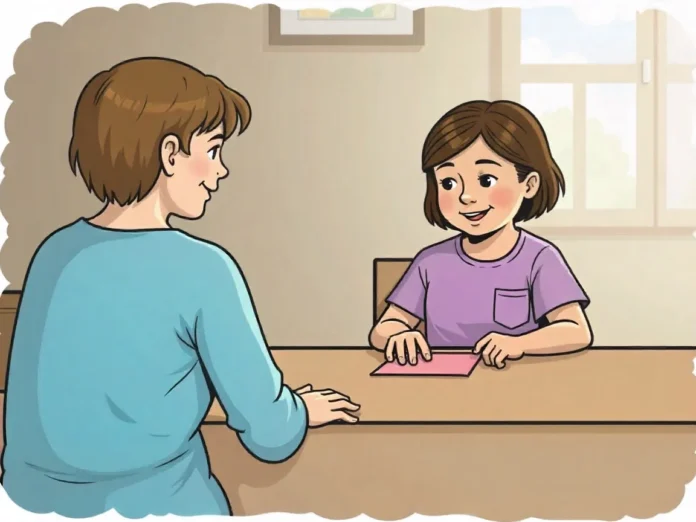Health chats with kids. They can feel a bit daunting, can’t they? Whether it’s a grazed knee or a question about where babies come from, finding the right words isn’t always easy. The aim isn’t to have one big, formal talk, but to keep a conversation going throughout their lives. If you can build a relaxed attitude around health from the beginning, you create a space where they feel comfortable coming to you with the big stuff later on. It means that when things get complicated, you’ve already done the hard work.
Starting with the Early Years
It all starts younger than you think. With small children, the goal is to make talking about bodies and health completely normal. Forget big, scary talks; this is about the little day-to-day moments. Use the proper words for body parts. All of them. Doing so removes any sense of shame and gives them the right language to use if they ever need to tell someone something is wrong.
Keep your explanations simple and factual. When you’re washing hands before a meal, you can say it’s to wash off germs that can give us a tummy ache. It’s just about connecting the dots for them in a way that makes sense. The same goes for feelings. You can link emotions to what’s happening in their body by saying things like, “It’s okay to feel wobbly inside when you’re nervous.” These small interactions build a solid base for honesty.
The Primary School Stage
Then you hit the primary years, and the questions really kick in. Their world gets bigger and so does their curiosity. Be prepared for a barrage of questions about how things work, why people are different, and all the things you might find awkward. The worst thing you can do is brush them off or invent a silly story. That just tells them this is a topic to be avoided. A straight, simple answer is always best.
This is also a good time to use stories in books or on television to get a conversation started. Talking about a character’s dilemma is often much easier than talking about themselves. You can gently introduce ideas about growing up, what foods help our bodies, and staying safe. For any child, but especially a child you foster with Foster Care Associates Scotland, who might find it hard to trust, these chats can be tricky. Their past experiences may make them wary. Extra patience and a calm, reassuring approach will be needed to show them they are in a safe space.
Approaching the Teenage Years
When they’re teenagers, your role flips. You need to do more listening than talking. They are trying to figure things out for themselves, and what they need is a sounding board, not a lecturer. They will value their privacy, but you can still make it clear you’re available.
Some of the best chats happen when you’re not even looking at each other, like in the car or when you’re busy with a task. It feels less like an interrogation. Be ready for conversations about mental health, relationships, and online pressures. It’s completely fine to say, “That’s a good question, I’m not actually sure of the answer.” Offering to look up some reliable information together shows you’re a team. It proves that you take their questions seriously.
So, what’s the secret? There isn’t one. It’s just about being there, being honest, and trying to listen. By making these topics a normal part of your family life, you’re not just giving them facts. You’re giving them the confidence to take care of themselves and, crucially, the ability to ask for help when they need it most.
